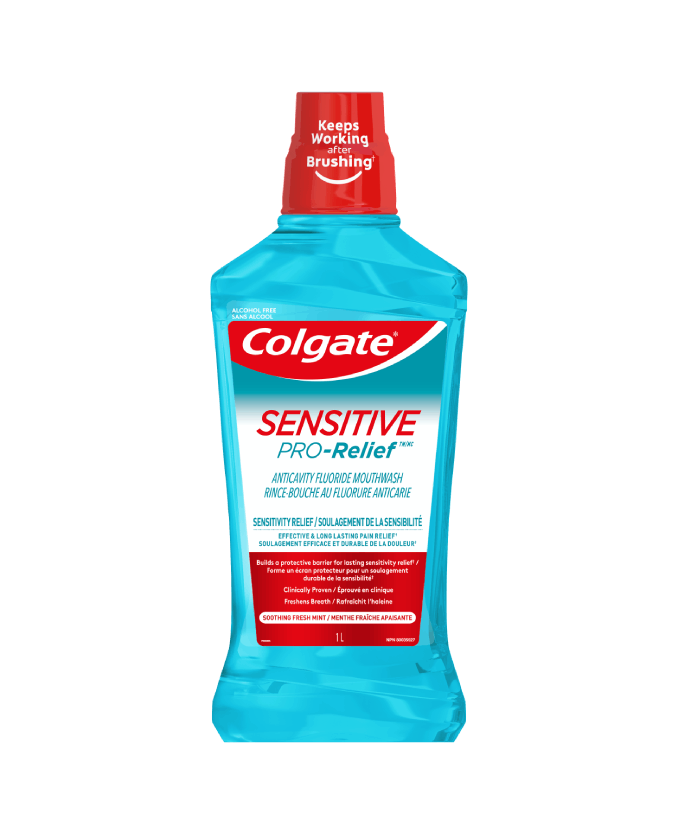12+ Colgate Sensitive Pro Relief Hacks To Stop Tooth Sensitivity

Tooth sensitivity is a common issue that affects millions of people worldwide, causing discomfort and pain when consuming hot or cold foods and drinks. One of the most popular toothpastes on the market designed to combat this issue is Colgate Sensitive Pro-Relief. However, while the toothpaste itself is highly effective, there are several additional strategies and hacks that can be employed to enhance its effectiveness and provide even more relief from tooth sensitivity.
Understanding Tooth Sensitivity
Before diving into the hacks, it’s essential to understand the cause of tooth sensitivity. This condition often arises when the dentin, the layer of tissue beneath the tooth’s enamel, becomes exposed. This exposure can be due to receding gums, tooth decay, or worn enamel, allowing the nerves within the dentin to become stimulated by hot, cold, sweet, or sour foods and drinks.
Colgate Sensitive Pro-Relief Hacks
Proper Brushing Technique: While it might seem obvious, using the correct brushing technique is crucial. Hold your toothbrush against your teeth at a 45-degree angle, pointing towards the gum line. Gently move the brush back and forth in small circular motions. This method helps clean your teeth effectively without causing further irritation or enamel wear.
Use a Soft-Bristled Toothbrush: Hard-bristled toothbrushes can wear away gum tissue and tooth enamel, increasing sensitivity. Switching to a soft-bristled brush can help minimize the risk of further damage.
Desensitizing Strips: In addition to Colgate Sensitive Pro-Relief toothpaste, consider using desensitizing strips. These strips contain ingredients that block the dentin tubules, reducing nerve stimulation and providing quick relief.
Avoid Acidic Foods and Drinks: Foods and drinks high in acid, such as citrus fruits, tomatoes, and soda, can erode tooth enamel and increase sensitivity. Limiting or avoiding these items can help prevent further damage.
Fluoride Mouthwash: Using a fluoride mouthwash can help strengthen tooth enamel, making teeth less sensitive over time. However, ensure that the mouthwash is not too harsh or acidic, as this could exacerbate the issue.
Regular Dental Check-Ups: Regular dental visits are crucial for maintaining good oral health. Your dentist can identify and treat issues before they become more serious, potentially reducing sensitivity.
Avoid Using Teeth as Tools: Using your teeth to open packages or bite your nails can cause chips and cracks, leading to sensitivity. It’s essential to avoid these habits to protect your teeth.
Warm Water Rinses: Rinsing your mouth with warm water after meals can help loosen food particles and reduce the risk of bacterial buildup, which can contribute to sensitivity.
Sugar-Free Gum: Chewing sugar-free gum after meals can stimulate saliva production, which helps neutralize acids and remineralize teeth, potentially reducing sensitivity.
DIY Salt Water Rinse: A saline solution (1⁄2 teaspoon of salt in a cup of warm water) can help reduce inflammation and heal gums, potentially reducing sensitivity. Swish the solution around your mouth for 30 seconds before spitting it out.
Avoid Brushing Immediately After Meals: Especially after consuming acidic foods or drinks, wait at least 30 minutes before brushing your teeth. Acidic foods can soften the enamel, making it more susceptible to wear during brushing.
Custom Mouthguard: For individuals who grind their teeth at night, a custom mouthguard can help prevent further wear on the enamel and reduce sensitivity.
Advanced Hacks for Severe Sensitivity
Potassium Nitrate Gels: For severe cases, using a potassium nitrate gel in conjunction with Colgate Sensitive Pro-Relief can provide additional relief. Potassium nitrate helps block the dentinal tubules, reducing the transmission of pain signals to the nerves.
Laser Treatment: Some dental offices offer laser treatments that can help seal the dentinal tubules and provide relief from sensitivity. This method is particularly effective for cases where over-the-counter treatments do not provide sufficient relief.
Conclusion
Combating tooth sensitivity requires a comprehensive approach that includes not only the use of desensitizing toothpastes like Colgate Sensitive Pro-Relief but also good oral hygiene practices, dietary adjustments, and potentially professional treatments. By incorporating these hacks into your daily routine, you can significantly reduce tooth sensitivity and enjoy a healthier, more comfortable smile.
What causes tooth sensitivity, and how can it be prevented?
+Tooth sensitivity is often caused by exposed dentin, which can occur due to receding gums, tooth decay, or worn enamel. Prevention includes maintaining good oral hygiene, using a soft-bristled toothbrush, limiting acidic foods, and regularly visiting a dentist for check-ups and cleanings.
Can Colgate Sensitive Pro-Relief be used by everyone, including children and individuals with certain health conditions?
+Colgate Sensitive Pro-Relief is generally safe for most adults and children over the age of 12 when used as directed. However, individuals with certain health conditions, such as gum disease or those undergoing dental work, should consult their dentist before starting any new oral care products. Children under 12 should use the product under adult supervision, and individuals with severe sensitivity may need additional treatments as recommended by a dental professional.
How long does it take to see results from using Colgate Sensitive Pro-Relief and incorporating the sensitivity reduction hacks?
+Results from using Colgate Sensitive Pro-Relief and incorporating sensitivity reduction hacks can vary from person to person. Some individuals may notice a reduction in sensitivity within a few days to a week after consistent use and practice of good oral hygiene habits. For others, it may take longer, up to 2-4 weeks, to experience significant relief. Consistency and patience are key, as the effectiveness of these methods depends on regular application and adherence to a comprehensive oral care routine.
Are there any potential side effects of using Colgate Sensitive Pro-Relief or other desensitizing products?
+Generally, Colgate Sensitive Pro-Relief and similar desensitizing products are well-tolerated. However, some individuals may experience mild side effects such as temporary mouth irritation or taste changes. These effects are usually transient and resolve on their own. If you experience any unusual or persistent side effects, it’s advisable to consult a dental professional for guidance.
Can I use Colgate Sensitive Pro-Relief in conjunction with other oral care products, such as whitening toothpastes or mouthwashes?
+Yes, Colgate Sensitive Pro-Relief can be used with other oral care products. However, it’s recommended to follow a specific routine. For example, you might use a whitening toothpaste in the morning and Colgate Sensitive Pro-Relief at night. It’s also advisable to use a fluoride mouthwash separately, as directed, to maximize its benefits without diluting the effectiveness of the desensitizing toothpaste. Always check the labels for any specific instructions or warnings about combined use.

